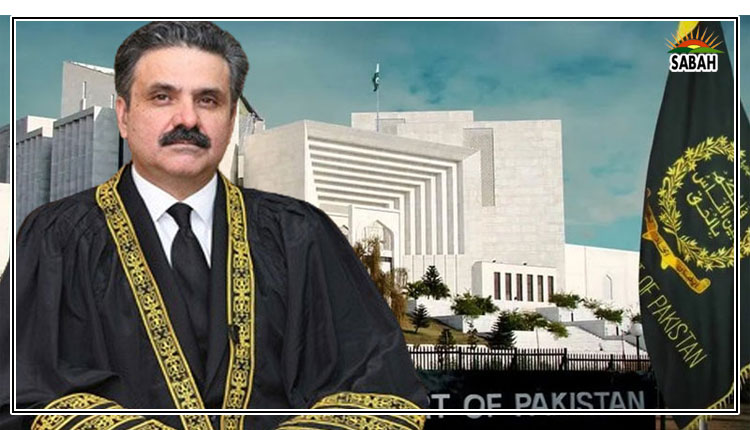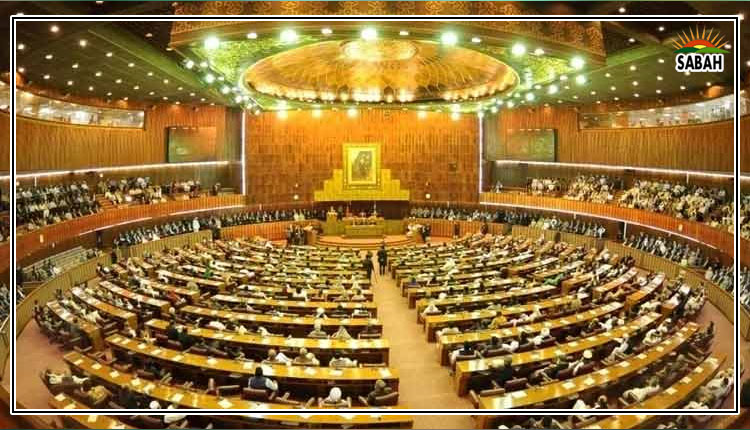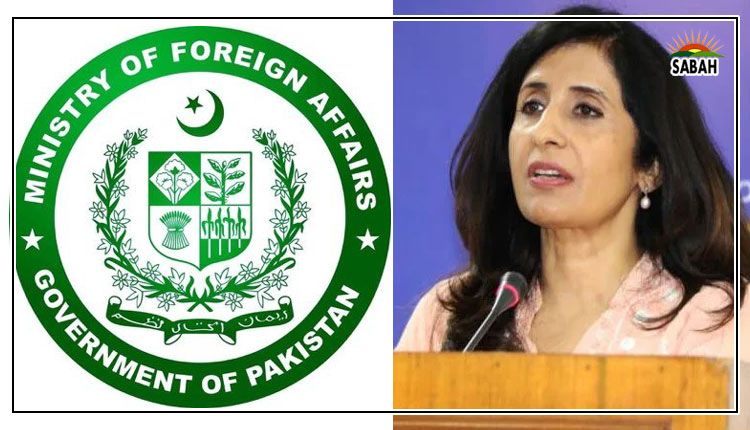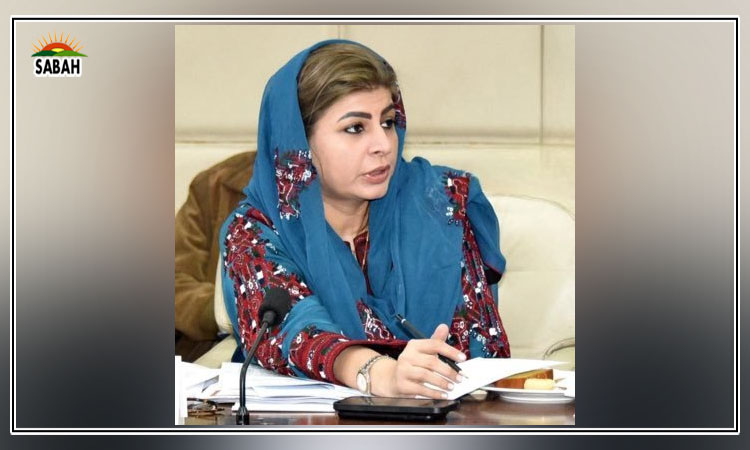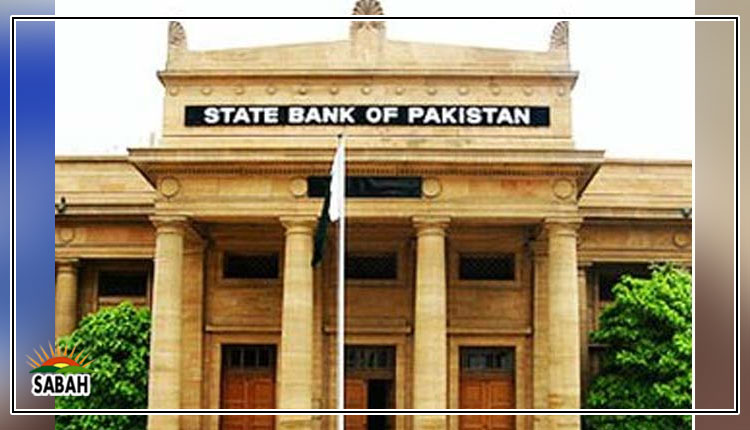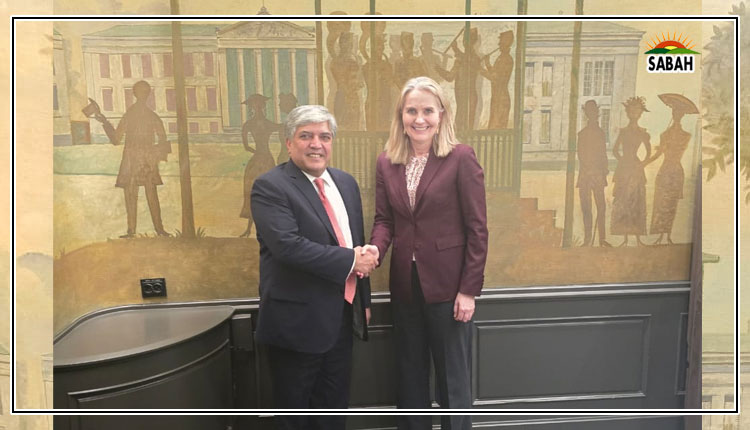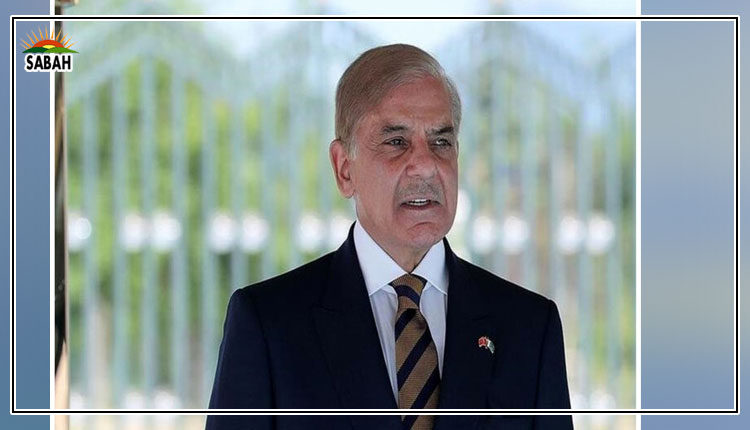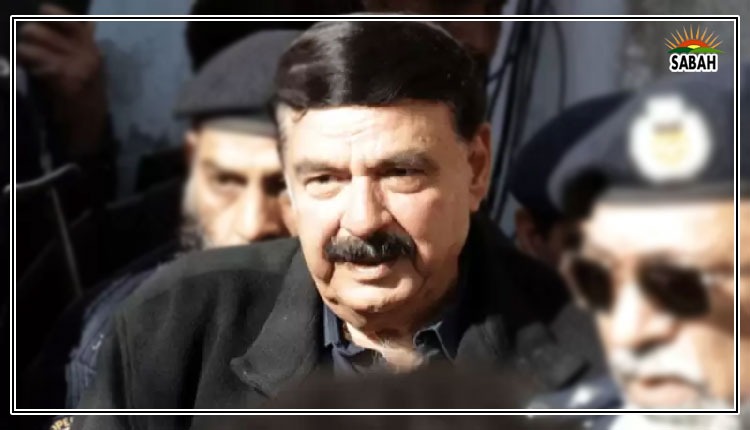Additional Sessions Judge Islamabad Tahir Abbas Sipra rejects second post-arrest bail plea filed by Sheikh Rashid
ISLAMABAD, Feb 09 (SABAH): Additional Sessions Judge Islamabad Tahir Abbas Sipra on Thursday rejected a second post-arrest bail plea filed by Awami Muslim League Chief and former interior minister Sheikh Rashid after he challenged a judicial magistrate’s dismissal of his previous petition for bail.
The Islamabad police had arrested Sheikh Rashid on Feb 2 for allegedly making defamatory remarks against the PPP leadership after which the court remanded him to the police’s custody for two days.
Upon completion of his physical remand, an Islamabad court had on Feb 4 sent Rashid on 14-day judicial remand in the case filed at the city’s Aabpara Police Station, rejecting the police request for an extension in his physical remand.
The same day, Sheikh Rashid filed a post-arrest bail petition in the court, which was rejected on Feb 6.
The AML chief is currently in the custody of Murree police after they were granted a one-day transit remand by an Islamabad sessions court on Wednesday. A case was filed against him in Murree on Feb 3.
Thursday’s hearing was presided over by Additional Sessions Judge Tahir Abbas Sipra while lawyers Sardar Abdul Raziq and Intizar Panjhota were representing Sheikh Rashid.
Following the rejection of Sheikh Rashid’s plea, his lawyers decided to approach the Islamabad High Court (IHC) to challenge the session court’s verdict. They said they would file another bail plea in the IHC once they receive the detailed order of today’s verdict.
At the outset of the hearing, Rashid’s lawyer Raziq read out the first information report filed in the case: “‘Sheikh Rashid made the statement according to a planned conspiracy. He wants to create conflict between the PTI and the PPP.’”
“Prior to the FIR, a notice was sent by the police, about which we found out through the media. The IHC suspended that notice, yet an FIR was registered,” he argued.
He added that the person who filed the case had asked for an investigation to be conducted about the conspiracy Rashid mentioned.
The lawyer asserted, “The sections registered in the FIR could only be filed by the federal government or a provincial government, not by any citizen.”
He argued that no such statement was made about “any religious group, ethnic group, or a community” upon which those sections could be applied.
Rashid’s counsel said that his client had only mentioned what PTI Chairman Imran Khan had talked about to him. “Imran Khan [also] made the statement [but] no action was taken against him.”
He requested the court to accept the bail plea saying that only a defamation case could be filed by Zardari.
Rashid’s other lawyer, Panjhota said, “Sheikh Rashid did not target any group. Benazir Bhutto Shaheed had also given a similar statement after which she was attacked.”
Prosecutor Adnan then began presenting his arguments. He asserted the IHC had suspended the notice but it had not stopped the police from filing a case.
“Conducting investigation during the case is in accordance with the law. Even the IHC did not stop them. Sheikh Rashid’s lawyers made arguments according to the acquittal from the case.”
Judge Supra remarked, “Arguments for acquittal from the case are usually given by the suspect’s counsels.”
The prosecutor emphasised that both, Zardari and Imran were the heads of their respective parties and making a statement that “Asif Ali Zardari wants to get Imran Khan killed is no small matter”.
He described Rashid’s statement as “extremely inciteful”, adding that he had “committed no usual crime and its punishment is up to seven years”.
“Even during World War II, a prince was killed on such statements. Sheikh Rashid repeated his crime numerous times; made the same statement again and again.”
Upon completion of the prosecutor’s arguments, the judge asked him: “According to the sections, the impact of Sheikh Rashid’s statements is on the whole nation. Is this the case?”
The judge further said, “Asif Ali Zardari is saying that the statement was not made by Sheikh Rashid but by Imran Khan. Did the police call Sheikh Rashid for investigation regarding the information [of the statement]?”
To this, Rashid’s lawyer Raziq replied that the information was present in the police record after Rashid shared it.
The judge asked him, “Where in the transcript is it written that Imran Khan told Sheikh Rashid about the conspiracy to kill? Sheikh Rashid said a meeting was held with Imran Khan in which he was informed about the conspiracy plan.
“At this stage, a decision has to be made only based on the police record. What was the evidence based on which Sheikh Rashid made the statement? In fact, he said evidence was not present.”
The lawyer then defended his client by saying that Rashid believed what Imran said, adding that an assassination attempt has already been made on the PTI chief.
He further alleged, “The allegation was made on Asif Ali Zardari, upon whom there are also allegations from the murder of Murtaza Bhutto to Benazir Bhutto’s.
Rashid’s counsel said, “’Imran Khan tweeted there are two people whom Asif Ali Zardari has contacted for getting Imran Khan killed.” He asserted that only a defamation case could be registered against Rashid.
Judge Supra then asked the investigation officer (IO) if the police had included in the investigation the person who Rashid held a meeting with and if Imran had been included as well. The IO replied that Imran was not included as Rashid had said there was no evidence for the statement.
The judge once again inquired, “Sheikh Rashid said Imran Khan told him about it so why was Imran Khan not included in the investigation?”
At this point during the hearing, the lawyer representing the petitioner who filed the case against Rashid requested the court that Imran Khan also be included in the investigation.
The judge asserted, “Police have made the challan; Imran Khan will be investigated for making false allegations. However, it isn’t enough for a conspiracy case against Imran.”
The petitioner’s lawyer then said: “Imran Khan and Sheikh Rashid are conspiring against Asif Ali Zardari together. These statements are also having an impact abroad as political workers are present overseas as well.
“Hatred is brewing between political parties. Rashid’s bail should not be accepted as he is creating incitement between both the political parties.”
He asked rhetorically if Rashid was not aware of the impact his statement could have, mentioning that he had remained a minister in past.
The petitioner’s lawyer further said the AML chief had “only spread jokes and incitement while appearing on television”.
Upon hearing the arguments from both sides, the court reserved the verdict and then rejected Rashid’s post-arrest bail plea.
Sheikh Rashid was arrested on Feb 2 on a complaint filed by Raja Inayatur Rehman — the vice president of PPP Rawalpindi Division — wherein he said that the AML chief, in a television interview on Jan 27, alleged that Zardari got the assistance of some terrorists to plan former prime minister Imran Khan’s murder.
The first information report (FIR) was registered at Islamabad’s Aabpara Police Station under Sections 120-B (criminal conspiracy), 153A (promoting enmity between different groups, etc) and 505 (statements conducing to public mischief) of the Pakistan Penal Code (PPC).
Another case was also registered against him at the Murree police station for manhandling a police official at the time of the arrest. It was registered under Sections 353 (assault or criminal force to deter public servant from discharge of his duty), 186 (obstructing public servant in discharge of public function) and 506(ii) (criminal intimidation) of the PPC.
Moreover, it emerged the next day that yet another case was lodged against Rashid by Karachi’s Mochko police on the complaint of a local PPP leader for using “extremely filthy and immoral language” against PPP Chairman Bilawal Bhutto Zardari while talking to the media outside Islamabad’s Polyclinic Hospital.
The FIR was registered under Sections 153 (wantonly giving provocation with intent to cause riot), 500 (punishment for defamation), 504 (intentional insult with intent to provoke breach of the peace) and 506 (punishment for criminal intimidation) of the PPC.
Later, a fourth case was also registered against the AML leader in Balochistan’s Lasbela as per his lawyer’s arguments on Feb 4.


